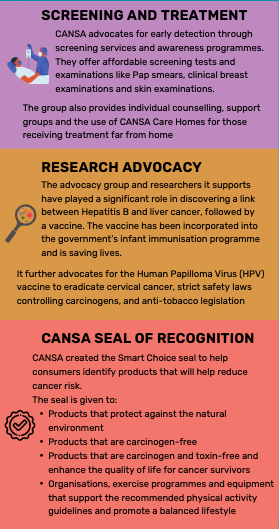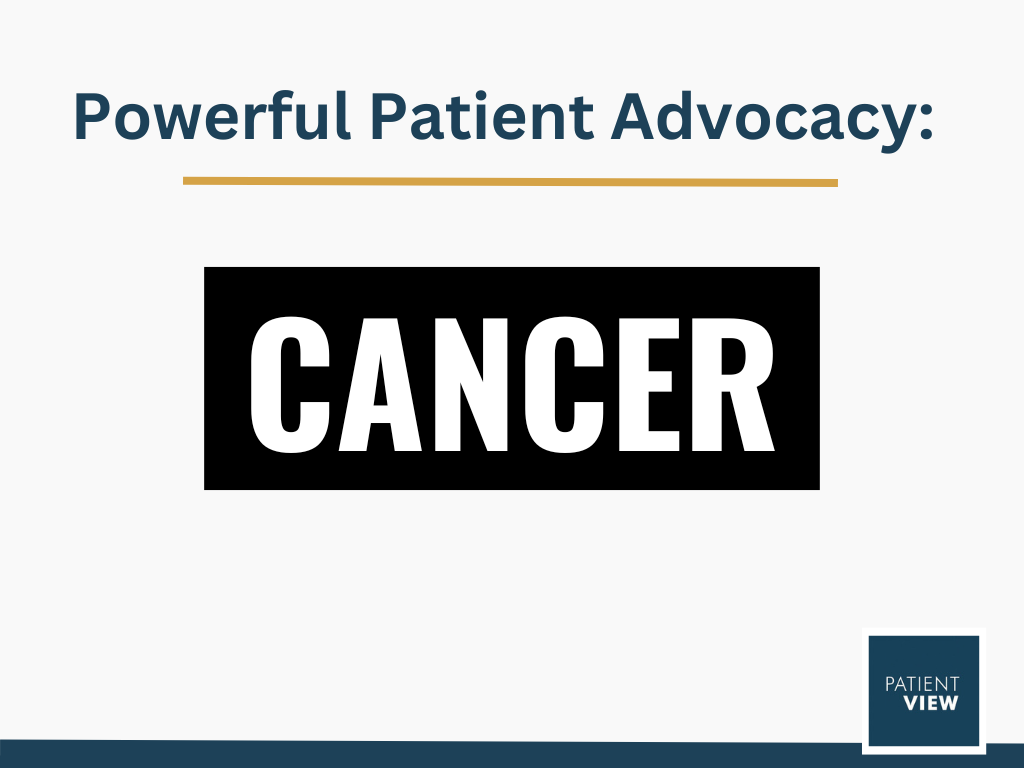Powerful Patient Advocacy: Helping to reduce the cancer burden in South Africa
February 2023:
The role of patient advocacy groups has become more salient as patients and their families take a more active role in their care. Patient groups are dedicated to raising awareness and liaising with pharmaceutical companies, clinicians and policymakers to ensure that patient care is patient-centred. These groups have also been central to seismic changes that have transformed how the pharmaceutical industry and other healthcare stakeholders function for the better.
We’re spotlighting the positive impact that patient groups and those in the healthcare industry have achieved by working together, like the Cancer Association of South Africa (CANSA) – a leading patient advocacy group fighting against the cancer burden in South Africa.
The cancer burden in South Africa
Cancer is the leading cause of mortality in South Africa and accounts for 10% of national deaths[1]. Access to quality cancer care depends greatly on geographic location, socioeconomic status and health insurance. Cancer patient advocacy groups like CANSA are key to increasing awareness and educating the public about cancer prevention and treatment and pressuring healthcare stakeholders to develop, fund and implement holistic cancer control plans.
“The cost of cancer in South Africa can be a debt sentence”
Helping to reduce the cancer burden

The Cancer Association of South Africa is a community-driven organisation that advocates for people with cancer. Its mission is threefold: 1) to enable research that will help to lower cancer risk, 2) to provide care and support to cancer patients, and 3) to educate the public about cancer symptoms, screenings and risk reduction. CANSA has collaborated with other organisations in South Africa like the Cancer Alliance, governmental bodies like the Department of National Health to increase access to affordable cancer prevention and treatment services.
Elize Joubert, CANSA CEO, said: “Cancer patients in our country may have a very different experience regarding access to cancer screening services, receiving timeous diagnoses, cancer treatment and support, depending on their socioeconomic status and where they live. This may lead to wide differences in the risks of developing and surviving cancer. This gap needs to be overcome and CANSA is tirelessly working towards reducing this inequity”.
The cost of cancer care
The cost of cancer in South Africa can be a debt sentence[1]. The high cost of cancer drugs coupled with the cost of surgery, inpatient care, consultations, and repetitive diagnostic care are barriers for cancer patients. This is a worldwide concern reflected in PatientView’s 2021 Corporate Reputation of Pharma survey – the cancer edition of the report found that patient groups from countries of all income levels are worried about the significant financial burden that prohibits access to cancer treatment[2].
Working together
In South Africa, cancer patient groups have worked alongside pharma companies and governmental bodies to reduce the cancer burden and improve patient outcomes. Their accomplishments are proof of the importance of these types of partnerships.
PatientView invites patient groups to participate in our Corporate Reputation of Pharma survey and share if the industry had met their needs and expectations and what more they could do. Our research provides the pharma industry with invaluable knowledge and insights from advocacy groups to bridge the gap between patients and the industry – driving better outcomes across all levels of healthcare.
To take part in this year’s survey, which is available in 22 languages, and share how the pharma industry should improve healthcare outcomes for patients, fill out the questionnaire here.
[1] https://sajo.org.za/index.php/sajo/article/view/220/616#CIT0006_220
[2] http://www.timeslive.co.za/sundaytimes/stnews/2016/02/21/Cost-of-cancer-can-be-a-debt-sentence
[3] https://www.patient-view.com/wp-content/uploads/2022/05/PATIENTVIEW-CORP-REP-CANCER-EDITION-PRESS-RELEASE-EMBARGO-MAY-31st-2022-FINAL.pdf
